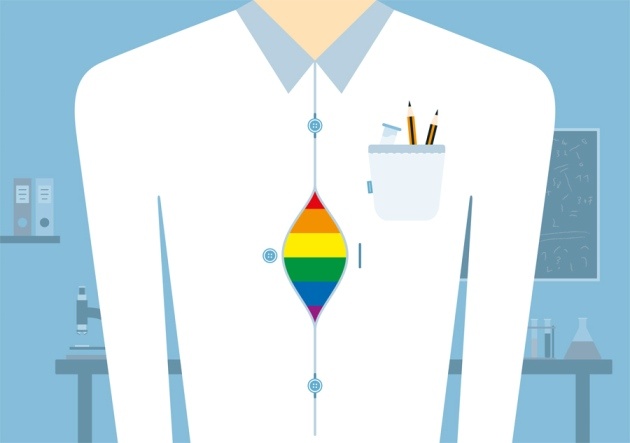When asked to name an LGBTQ+ scientist, Alan Turing is often the first and only name which comes to peoples’ minds. The tragic suppression of his sexuality is a story that’s stuck with the public and drives home the societal change in the 65 years since his death. However, when asked to think further on the LGBTQ+ science, few people could produce a second name, let alone a full discussion.
But why is it important to have openly LGBTQ+ scientists? Surely how someone identifies, or their sexuality, is irrelevant – the quality of their research is unaffected. The truth is that having a diverse scientific community helps develop new research, as different people have different ways of looking at the world. The value of this diversity is evidenced by the inclusion of women in science, which gave way to a new feminist scientific approach. This aimed to explore the complicated nature of the interactions in science, with previous practice usually trying to find the most direct and hierarchical explanation of interactions. LGBTQ+ scientists have the opportunity to provide another viewpoint, meaning that making science a place in which they are welcomed should be of the highest importance.
However, encouraging the LGBTQ+ community into science is not exactly helped by the tragic story of Alan Turing and its prevalence in the public mind. It’s therefore important to ensure high achieving LGBTQ+ academics are openly praised for their work and given more publicity to encourage prospective scientists into the field. Not only does it demonstrate that LGBTQ+ academics are just as capable of success as their peers, but also that there is a community within science for LGBTQ+ people. The LGBT STEMinar held in January each year is an excellent example of how this community is being celebrated in the UK. Attending events such as these is a great way to support LGBTQ+ scientists and to discover more about the research being conducted in a wide range of fields.
Of course there is still much more work which can be done in every facet of society, let alone in science, to make LGBTQ+ people both more accepted and appreciated for their differences. Encouraging our LGBTQ+ peers is one of the greatest actions society can do for the scientific community, we just need to make it happen.
Illustration by Denis Carrier

